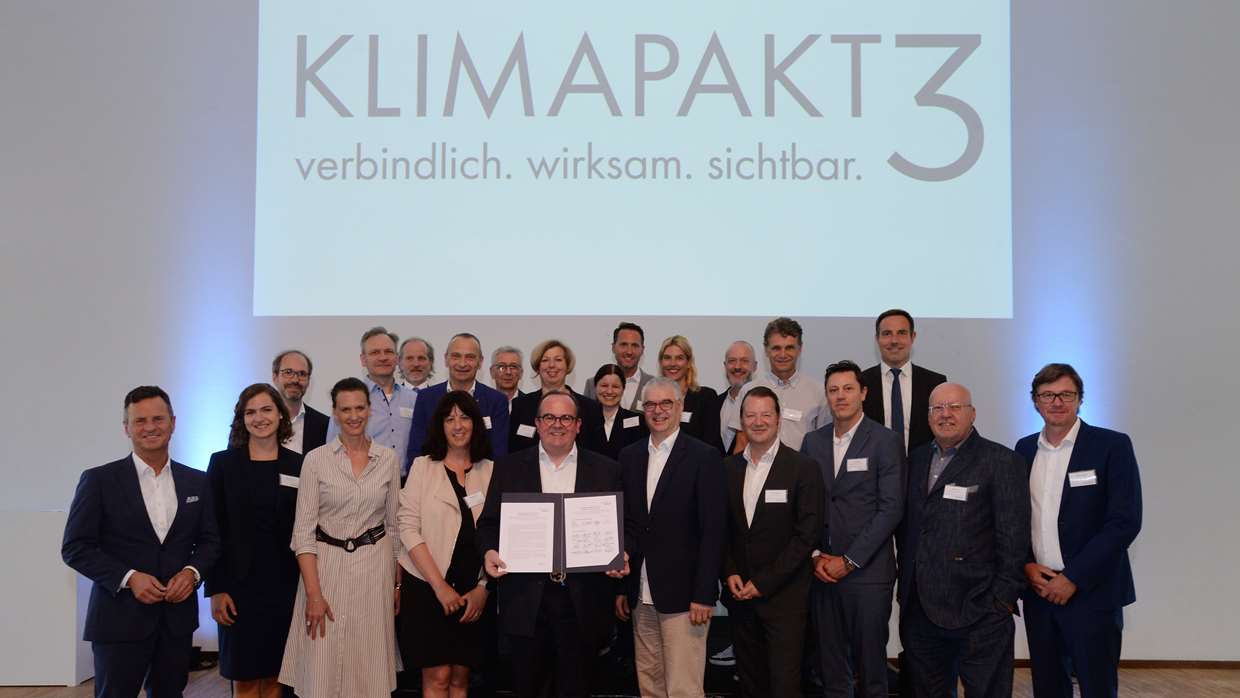Production & maintenance
Environmental management
Environmental protection is a maxim guiding how we do business. We want to be efficient in our use of energy and resources, minimize emissions, and avoid environmental risks. We are continuously reducing carbon emissions by following our ecoRoadmap climate strategy for site operations.

Operational environmental protection at our production and maintenance sites is an important principle guiding our behavior and is implemented in our business processes. It is also enshrined in the global Code of Conduct for all employees as well as in our Policy Statement on the Protection of Human Rights as environmental due diligence in site operations. We have also laid down our environmental responsibility in the MTU Principles in the section entitled “Environment and society.”
Standards are applied through a management system that defines processes, responsibilities, and targets at the site level. Environmental protection is part of MTU’s integrated management system (IMS). The environmental criteria apply to all divisions and processes and are laid down in documented process flows and special company standards. Minimum operating standards for our machines and facilities, such as engine test cells, are laid down by national legislation and subordinate regulations.
In addition, MTU’s mandatory Code of Conduct commits suppliers to act in an environmentally conscious way.
The Executive Board holds responsibility for company-wide environmental protection and climate action. As part of our governance structure, the Executive Board and management are regularly informed about the ecoRoadmap climate strategy for site operations (MTU Green Global expansion stage). The Executive Board receives a report on the energy consumption of the production and maintenance sites (measured in terms of production hours) via the quarterly IMS reporting. In addition, regular reports on CO2 reduction in site operations are submitted to the Executive Board and senior management (Corporate Sustainability Board) as well as to the Green Global Board. More about the ecoRoadmap under Climate action at our sites
Environmental management is not centralized, with the environmental departments at all production sites assuming responsibility for the local implementation of relevant rules and regulations. Individual site managers are directly responsible for environmental protection; they receive advice and support from the in-house specialists. The technical departments regularly share their innovations and best practices with each other. The German sites are certified to ISO 14001, the international standard for environmental management systems, and/or to the EU Eco-Management and Audit Scheme (EMAS).

was spent on investments and ongoing expenses for environmental protection and climate action at our production and maintenance facilities in Germany in 2023. The development of geothermal energy at our Munich site is an investment in a climate-neutral energy supply.
Every contribution to environmental protection counts
We get our employees involved in active environmental protection via information campaigns and training courses—for instance, to motivate them to increase energy efficiency at work. This takes place as part of initial training for new employees, an eco action day for apprentices, and via web-based training on environmental protection. The Code of Conduct stipulates measures to support employees in acting in an eco- and climate-conscious way.
We are in dialogue with our stakeholders about the environmental impact of site operations. Through their environmental statements, the MTU sites in Munich, Hannover, and Ludwigsfelde inform the public annually. We provide information on the geothermal energy project at the Munich site on our website in the form of a project diary. Environmental officers are the point of contact for questions and comment. → More about Stakeholder dialogue Stakeholders can also provide feedback on sustainability issues via an online survey on the MTU website, or they can use the available reporting channels to submit complaints and report grievances, which we investigate immediately. This applies to employees, suppliers, residents, and other stakeholders.
Emergency management plans have been prepared to deal with operational disruptions with a negative environmental impact, and a crisis committee has been set up. We also hold regular staff drills and provide instructions on what to do in the event of an emergency.